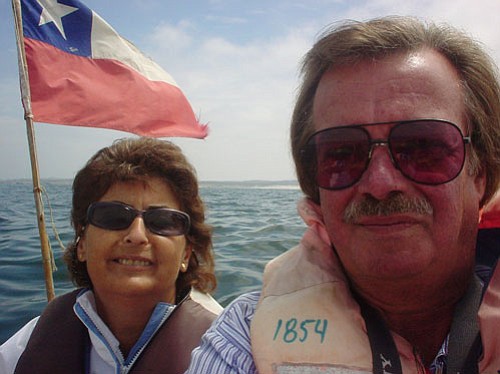I had been regularly visiting Vancouver and Clark County since the early 1980s, and had totally fallen in love with the area. After a divorce California-style, I was able to move from the San Francisco Bay area to Orchards in 2002.
I became close friends with one of my neighbors. She spoke with the slightest of accents that I could not identify but thought inappropriate to inquire about. Several months later, she commented that she’d grown up with a girlfriend in Santiago, Chile, and her friend and I shared a lot of common interests. She asked if I might be interested in sharing e-mails with her friend. I told her that I would enjoy having a pen pal from another country.
Her name was Victoria Elena, or V.E. for short.
Initially, we seemed to hit it off very well. I thought that she seemed quite a fascinating and interesting lady. After about a month, she went from fascinating and interesting to being a very special lady, and I began investigating the possibility of a trip to Chile to meet her. If nothing came of it, I figured, I would enjoy my first trip to South America anyway.
At first I found the round-trip flight fare to be prohibitive, but two weeks later, I checked the fare again and found that the price had dropped by half. In the spring of 2003, the two-week trip was on.



